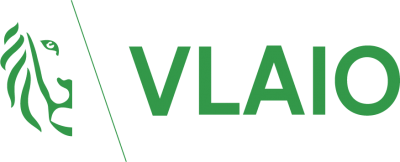Topics
We organise our actions in six thematic & strategic agendas:
Strategic Agendas:
Bio-economy
Circular Construction
Chemicals/Plastics
Manufacturing Industry
Food Chain
Water Cycles
Seven leverages provide additional support:
Leverage effects:
Lever Policy Instruments
Lever Circular Procurement
Lever Communication
Lever Innovation & Entrepreneurship
Lever Financing
Lever Jobs & Skills
Lever Research
What, why and how?
Why are we pursuing a circular economy?
Future visions 2050
How do we see our circular future?
About our management
Who steers what at Flanders Circular?
Consumption and sorting scan for vulnerable households
Sensitising vulnerable families about waste disposal
Today, there are already many praiseworthy initiatives in Flanders that are committed to a transition to a more circular economy and society. However, many of these initiatives mainly reach middle-class families. We still face the challenge of involving everyone in this process, including the most vulnerable people.
In 2017, the Association of Environmental Entrepreneurs in the Social Economy (KOMOSIE) already developed the Energy Scan, an accessible communication tool to also involve vulnerable people in the circular transition.
Based on the lessons learned and the results of that project, we now want to go one step further with the Consumption and Sorting Scan (CSS).
Specifically, during a home visit, vulnerable households receive tailor-made information on how to sort and recycle waste correctly, and what initiatives exist on recovery, reuse, sharing and repurposing. These households receive concrete solutions to their real problems and answers to their questions. They also receive a sorting kit to get started right away.
After 8 weeks, there is a second contact moment in which we go over what has been successful and what still needs attention.
The people who carry out these visits, the 'Energiesnoeiers', are consultants who are specialised in a service aimed at quality living for vulnerable households. Moreover, they are also people with a greater distance to the labour market, often with a vulnerable background themselves. This is also the strength of our approach: complex issues are handled with and by the target group.
HERWIN (Komosie)
Partners Ecolife
Sectors
Themes
Organisations
MOST IMPORTANT
RESULTS
- We succeeded in reaching the right target group with our scan. We visited a total of 154 households, all of which belonged to the most vulnerable population group.
- By working with 2 visits, an informative talk and a follow-up talk, we created a personal tailor-made support, which clearly had a motivating effect on the behaviour of the target group. This resulted in an average of almost 12 residual waste bags less per family, per year.
- This pilot project shows that the expertise of the Energy Savers offers possibilities for broadening the service to different themes within quality of life. This could result in the creation of new jobs.
- Finally, Econocom provides concrete advice to stimulate the financing of circular economy. We demonstrate the importance of active mutual cooperation between companies, financial institutions and governments and give a series of concrete recommendations for each of the parties involved.
MOST IMPORTANT
LESSONS LEARNED
- During this project, we learned that the scan can certainly be useful for social housing companies, in cooperation with local social houses and services.
- In terms of language and communication, we can still take some extra steps, for example by making the action booklet with all the information available in other languages (possibly via a QR code that takes readers to an online translation).
- During the home visits we noticed that still too few people from the vulnerable population group drink tap water. So there is still some work to be done to better inform and convince people about this.
WHAT DOES
THE FUTURE HOLD?
The intention was to roll out the Consumption and Sorting Scan throughout Flanders. The most important condition for achieving that goal is a good structural policy and financing framework. Although we organised several consultation meetings with OVAM and Interafval and preparatory notes were drawn up, the further roll-out of this project has stalled for the time being. This is partly due to a number of major reorganisations within KOMOSIE, which is now known as HERW!N
A few Energiesnoeiers are still refining the methodology and trying to enter into partnerships with social housing companies at a local level. The aim is to start up lighthouse projects, to make the methodology further known so that it can be picked up.
















